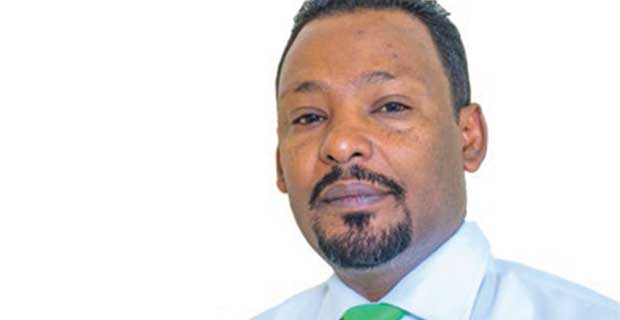
Featured | Nov 23,2019
Last week, the United Nations (UN) convened world leaders and development experts in Addis Abeba to try to focus minds on the need for more development finance. In the face of tight government budgets, a looming debt crisis, and the chronic challenge of attracting private investment, the outlook for many developing countries — especially in Africa — seems bleak.
Yet the situation need not be so dire. Astonishingly, governments, financial institutions, and investors have neglected a critical tool. Although new technologies enable easy access to data that earlier generations could only dream of, they are not used to make the most of every available dollar.
As the UN's "Financing for Sustainable Development Report 2024" shows, better data leads to better finance, and improving data systems can unlock new funds and enhance the efficiency of resource allocation. Specifically, investment in data and digital technologies (including artificial intelligence) can help us mobilise more money in three ways.
The first channel is taxation. Governments need a sustainable source of revenue to provide the health and education services people rightly expect. However, effective taxation requires knowing where people are and how much they can afford to pay. Some of the earliest writing specimens are marks made thousands of years ago by tax collectors recording household assets on clay tablets. Today, tablets are digital, but billions still lack a registered physical address.
Investment in data systems and digital technologies can help. A recent randomised trial in Ghana showed that equipping tax collectors with better data-collection technology more than doubled tax revenues to local governments and resulted in a more progressive tax system - the highest earners pay the highest rate.
Despite these clear benefits, too many governments and development partners neglect the foundational elements of modern data systems – the census, administrative competence, and core capacity in statistics offices – and the efficiencies that would follow from sharing data across governmental and public institutions.
Better data are key to mobilising private finance, which is essential to meeting the goals enshrined in the UN's 2030 Sustainable Development Agenda. However, companies have long argued that a lack of data constrains their ability to invest in digital infrastructure, clean transportation, and housing. Without data, they can neither identify investment projects nor calculate the risks and likely returns.
Much of this information does exist. For example, in 2022, data from multilateral development banks (MDBs) on their portfolios' returns and defaults was crucial in establishing a one-billion-dollar fund to bring private capital for sustainable development investments. The problem is that while some of these data are already available, they need to be made accessible at a more granular level to be useful to rating agencies and other private-sector interlocutors. We can strengthen the link to private-sector investment flows by focusing resources on such improvements.
Finally, we need better information not only to mobilise finance, but also to make the most efficient use of available resources. Without data, allocating resources – whether from domestic sources, bilateral or multilateral aid programs, or private-sector investment – will depend on assumptions and guesswork. That is not good enough, especially nowadays, when every dollar needs to be leveraged as much as possible.
Reliable data enables decision-makers to focus directly on the greatest needs and to determine what is and is not working.
Consider traffic accidents. Because improving infrastructure is costly, Kenya combined administrative, crowdsourced, and private-sector data to enable the National Police to generate 100 new variables for identifying crash hotspots; it turned out that in Nairobi, the capital, half of the casualties occurred on five percent of the road network. Public authorities have since focused their road safety interventions on these high-risk areas, resulting in a much more efficient use of available funds.
Rapid advances in AI create even bigger opportunities to process and analyse data similarly. But to make the most of these technologies, political leaders must invest more in data systems, mandate data sharing across institutions, and support the development of the right public-sector skills and capacities.
This should be an easy sell, because investments in data pay off many times over. One recent study suggests that projects focused on strengthening data systems return an average of 32 dollars for every dollar invested, whether through doubling tax revenues, raising billions in new private-sector investments, or achieving greater efficiency in allocating available resources. If anything, AI and other data-driven technologies will supercharge this process, making such investments even more productive.
There is no magic money tree for global finance. However, by failing to invest in data and make the most of the data available, too many governments are making life harder for themselves. Data can unlock more financing. We need today's leaders to turn the key.
PUBLISHED ON
[ VOL
, NO
]

Featured | Nov 23,2019

Radar | Apr 24,2021

Sunday with Eden | Jan 28,2023

Radar | Oct 02,2023

Viewpoints | Apr 10,2023

Fortune News | Nov 29,2020

Fortune News | Aug 24,2019

Advertorials | Sep 04,2023

Verbatim | Jun 17,2023

Commentaries | Jul 13,2024

My Opinion | 131819 Views | Aug 14,2021

My Opinion | 128203 Views | Aug 21,2021

My Opinion | 126147 Views | Sep 10,2021

My Opinion | 123767 Views | Aug 07,2021

Dec 22 , 2024 . By TIZITA SHEWAFERAW
Charged with transforming colossal state-owned enterprises into modern and competitiv...

Aug 18 , 2024 . By AKSAH ITALO
Although predictable Yonas Zerihun's job in the ride-hailing service is not immune to...

Jul 28 , 2024 . By TIZITA SHEWAFERAW
Unhabitual, perhaps too many, Samuel Gebreyohannes, 38, used to occasionally enjoy a couple of beers at breakfast. However, he recently swit...

Jul 13 , 2024 . By AKSAH ITALO
Investors who rely on tractors, trucks, and field vehicles for commuting, transporting commodities, and f...

Jul 5 , 2025
Six years ago, Ethiopia was the darling of international liberal commentators. A year...

Jun 28 , 2025
Meseret Damtie, the assertive auditor general, has never been shy about naming names...

Jun 21 , 2025
A well-worn adage says, “Budget is not destiny, but it is direction.” Examining t...

Jun 14 , 2025
Yet again, the Horn of Africa is bracing for trouble. A region already frayed by wars...

Jul 6 , 2025 . By BEZAWIT HULUAGER
The federal legislature gave Prime Minister Abiy Ahmed (PhD) what he wanted: a 1.9 tr...

Jul 6 , 2025 . By YITBAREK GETACHEW
In a city rising skyward at breakneck speed, a reckoning has arrived. Authorities in...

Jul 6 , 2025 . By NAHOM AYELE
A landmark directive from the Ministry of Finance signals a paradigm shift in the cou...

Jul 6 , 2025 . By NAHOM AYELE
Awash Bank has announced plans to establish a dedicated investment banking subsidiary...